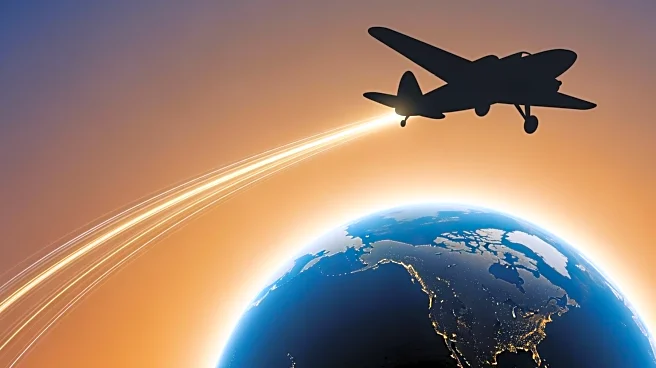Rapid Read • 8 min read
European leaders are meeting with Chinese officials in Beijing to discuss trade, climate change, and global conflicts. The summit, initially planned for two days, has been reduced to one, reflecting low expectations for significant agreements. Key figures such as European Commission President Ursula von der Leyen and European Council President António Costa are engaging with Chinese President Xi Jinping and Premier Li Qiang. The discussions mark 50 years of relations between Brussels and Beijing. The EU aims to address issues such as China's stance on Russia's invasion of Ukraine, trade imbalances, cyberattacks, and human rights concerns. Despite China's call for deeper cooperation, the EU remains cautious, especially in light of potential trade conflicts with the United States.
AD
The summit highlights the complex dynamics between two major global economic powers. The EU's concerns over trade imbalances and China's human rights record are significant, as they impact economic and diplomatic relations. The inclusion of Chinese firms in the EU's sanctions against Russia underscores the geopolitical tensions affecting international trade. The EU's cautious approach reflects its need to balance relations with China while maintaining strong ties with the United States. The outcome of these talks could influence global trade policies and economic stability, affecting industries reliant on EU-China trade.
The EU and China are likely to continue navigating their trade relationship amidst ongoing geopolitical tensions. The EU may seek to strengthen alliances with other countries, as evidenced by recent trade agreements with Indonesia and Japan. The EU's approach to China will be influenced by its need to maintain economic stability and address human rights concerns. Future negotiations may focus on resolving trade imbalances and addressing cybersecurity issues. The EU's stance on sanctions against Russia and its impact on Chinese firms will remain a critical point of contention.
The summit reflects broader geopolitical shifts, with the EU seeking to diversify its alliances beyond China and the United States. The EU's engagement with countries like Japan and Indonesia indicates a strategic move to mitigate risks associated with dependency on major powers. The discussions also highlight the ethical considerations of trade relations, particularly concerning human rights and environmental policies. The EU's approach to China may influence global standards on these issues, potentially leading to long-term shifts in international trade practices.
AD
More Stories You Might Enjoy












